Biorepository Unit for Neurological Disorders
The Repository Unit for Neurological Disorders is a Boston Children’s Hospital database and biological specimen bank that pairs biological samples with clinical, genetic, and behavioral phenotyping data for translational research and clinical trials. Working in conjunction with the Regulatory Unit, the Biorepository has developed the infrastructure to identify and recruit patients with IDD to donate biological samples.
Any patient with a neurological disorder their family members are eligible to participate. All data and bio-samples will be stored indefinitely and can be used by multiple investigators for future studies. The Biorepository bio-samples include blood, saliva, CSF, skin biopsy, and post-surgical brain samples with collaborations across multiple departments.
Biorepository Services
- Consenting
- Specimen Procurement
- Access to Bio-samples (tissue, DNA, RNA, etc.)
- Access to Clinical Data
Cite the Core:
Annual updates will be required for approved projects as well as the following statement of acknowledgment in publications.
“This research was supported in part by the Repository Core for Neurological Disorders, Department of Neurology, Boston Children’s Hospital, and the IDDRC (NIH P30HD018655)”.
Samples of Neurological Disorders
Collection includes, but is not limited to, neurogenetic disorders, brain developmental disorders, autoimmune disorders, cerebrovascular disorders, and various other epileptic conditions, specifically:
1. Patients with neurogenetic disorders:
Tuberous sclerosis complex, CDKL5, Rett syndrome, Joubert syndrome, KCNQ5, SETBP1, HIVEP2, Kleefstra syndrome, SSADH
2. Brain developmental disorders:
Septo-optic dysplasia, agenesis of the corpus callosum, Sturge-Weber Syndrome, cerebellar hypoplasia, hydrocephalus, polymicrogyria, focal cortical dysplasia, microcephaly, ventriculomegaly, Dandy-Walker malformation
3. Autoimmune disorders:
Rasmussen’s encephalitis, ROHHAD syndrome, Opsoclonus Myoclonus Syndrome, encephalitis, myelitis, demyelinating diseases, optic neuritis
4. Cerebrovascular disorders:
AVM, Moyamoya syndrome, cavernous malformation, Chiari malformation
5. Various epileptic conditions
Contact Us
To initiate services, please Contact:
Brianna Godlewski Email >
This form is only accessible to users on the BCH internal network.
Staff
Core Director
Mustafa Sahin MD, PhD
Co-Director
Kira Dies, ScM, CGC Email >
Fees
| Sample Type | Fee |
| DNA | $25 |
| Serum | $25 |
| Plasma | $25 |
| CSF | $25 |
| Brain Tissue | $50 |
If you require a sample type not listed above, please contact us.
Biorepository Samples Collected in the Last Year
DNA Samples
CSF Samples
Plasma Samples
Serum Samples
Brain Tissue Samples
Urine Samples
Tumor Slide Samples
Muscle Tissue Samples
Fibroblast Lines Samples
iPSC Samples
PMBC Samples
The Procedure for Accessing Biorepository Core Samples
The Biorepository Core was designed to support the research community at large by maintaining a library of de-identified biological samples with phenotypic data for use in translational research. We aim to enroll rare neurological disorders, including neurogenetic disorders, developmental brain disorders, autoimmune disorders, cerebrovascular disorders, and various other epileptic conditions.
We currently have the following samples banked: DNA, CSF, Plasma, Serum, Brain Tissue, Urine, Tumor Slides, Muscle Tissue, Fibroblast Line Samples, iPSC Samples, and PBMC Samples.
For potential research projects, please contact the clinical research coordinator for the repository.
If your project is deemed feasible by the clinical research coordinator, and there are ample samples available, you will be directed to the following application.
Once completed, your request should be submitted to neurocore@childrens.harvard.edu, where it will be reviewed and sent to the biorepository steering committee. There it will be discussed and either approved or denied.
Researchers with approved applications will work with the clinical research coordinator to receive their sample aliquots or ship them to a collaborating institution. Researchers will be responsible for covering any shipment costs.
Annual updates will be required for approved projects as well as the following statement of acknowledgment in publications.
“This research was supported in part by the Repository Core for Neurological Disorders, Department of Neurology, Boston Children’s Hospital, and the IDDRC (NIH P30HD018655)”.


